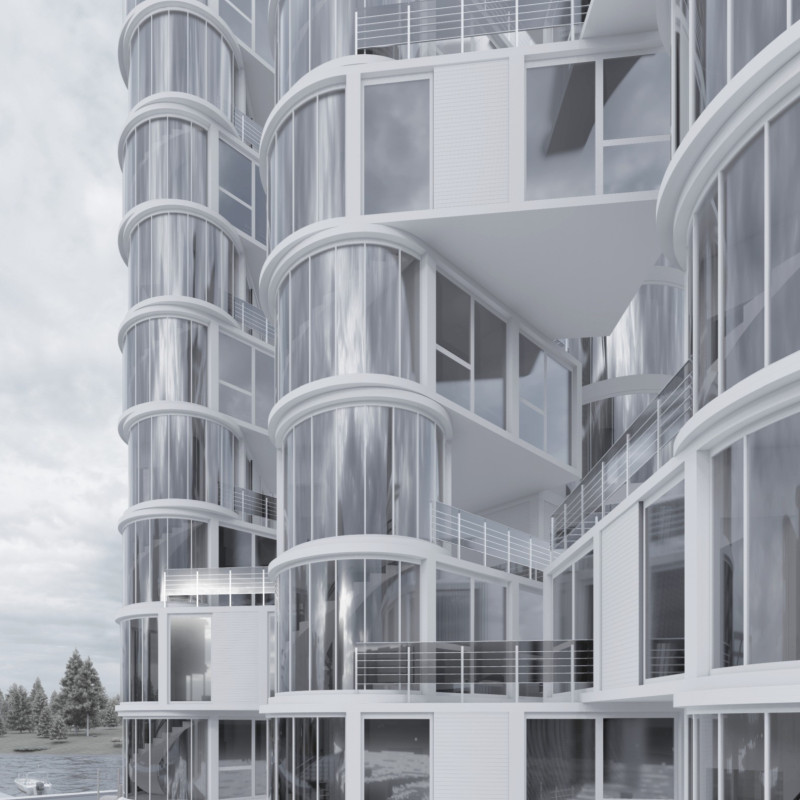5 key facts about this project
The Modular Pinball House project reimagines residential architecture through a concept inspired by the dynamics of a pinball game. Located in an urban setting, the design combines three distinct modules that enhance community connections while offering private living spaces. The core module acts as a shared area, and two bedroom modules provide individual privacy, allowing flexibility in how residents interact with each other and their environment.
Design Concept
The focus on modularity allows for a living arrangement tailored to the needs of urban inhabitants. The core module remains fixed and consists of essential living functions such as a kitchen, living room, and public staircase. The two bedroom modules measure 36 square meters each and can rotate within a range of 180 degrees. This feature creates various spatial possibilities, helping to optimize natural light and provide views from different angles.
Modular Configurations
The design includes several configurations that improve the usability of the living units. The basic module configuration keeps the relationships between the units compact and stable. In contrast, the one-step and two-step rotation configurations promote interaction with outdoor spaces. This flexibility allows occupants to enjoy sunlight and surrounding views, contributing to a more engaging living experience.
Sustainability and Efficiency
Sustainability is an essential focus of the design. An algorithmic ideogram guides the overall plan, emphasizing energy efficiency and light access. By considering the spatial relationships between modules, the design includes elements that integrate green spaces, promoting harmony between the built environment and nature.
The Modular Pinball House presents an innovative approach to urban living. The adaptable design of the bedroom modules allows residents to personalize their spaces and interactions. Each part of the structure works together to create a dynamic living environment, reflecting the potential of modular architecture in modern urban contexts.





















































